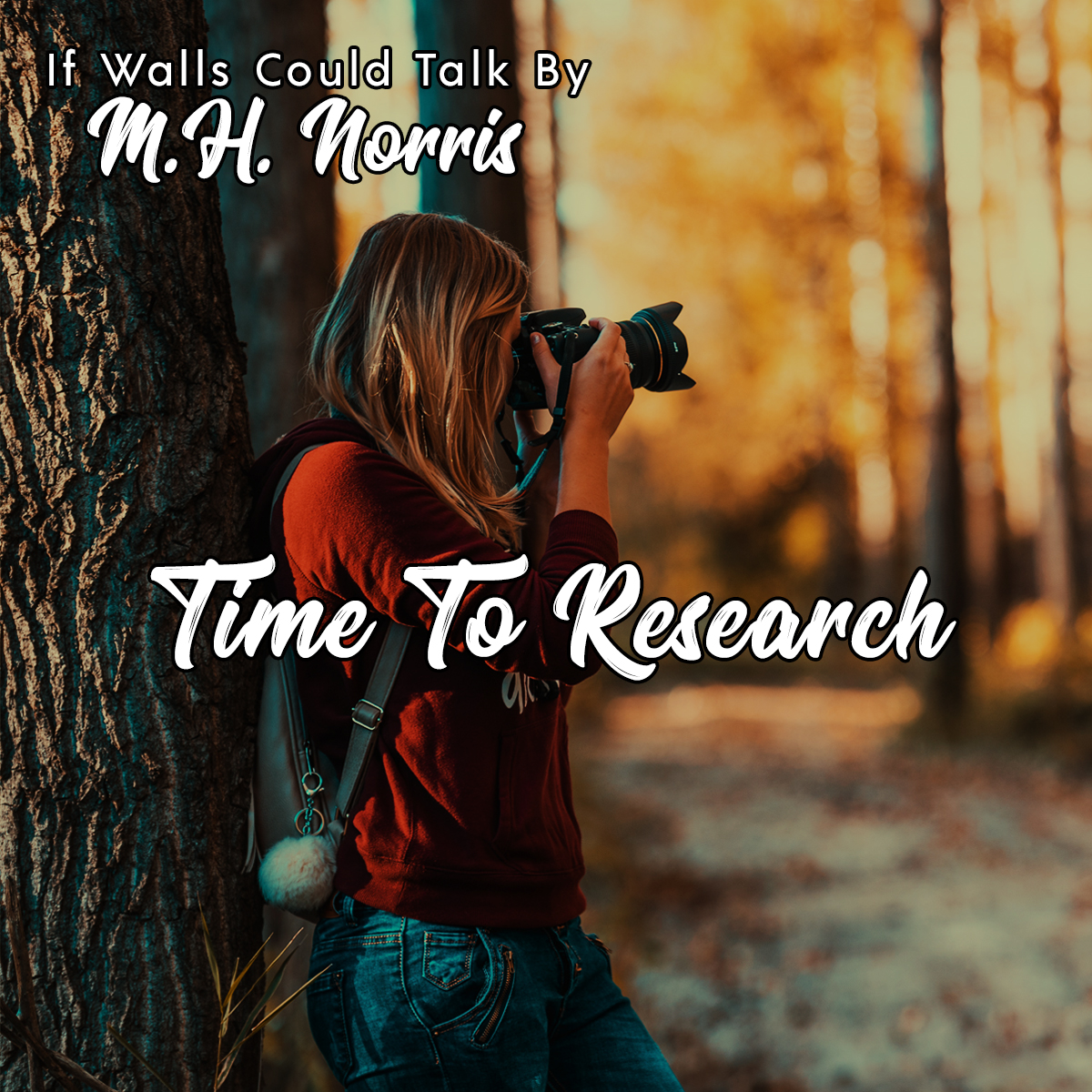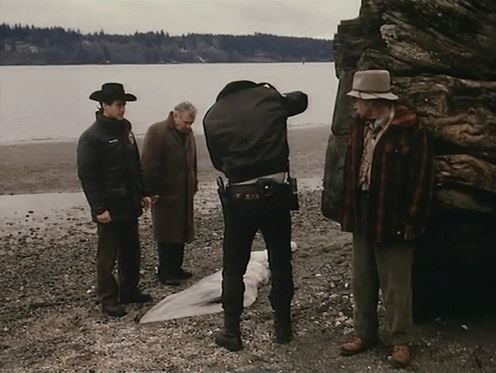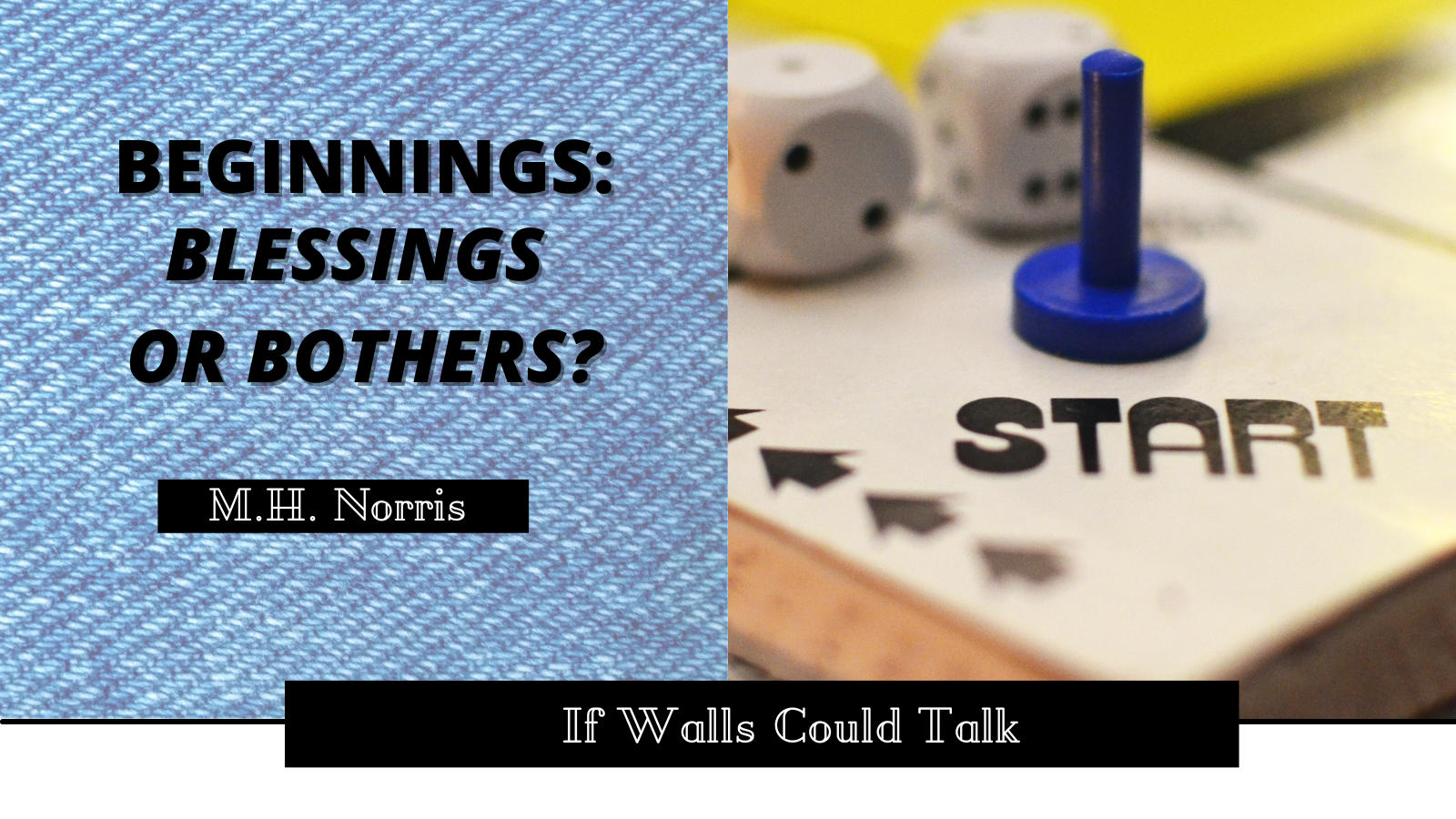
If Walls Could Talk: Embrace Your Inner Ravenclaw – Time To Research
Sorry, I couldn’t resist the Harry Potter reference.
One of the consequences of writing something that you don’t have direct life experience with is that you have to do a TON of research.
When I came to write my first mystery, I really had to start from the ground up. Honestly? What did I know about writing a murder mystery, especially a police procedural?
I spent a month diving deep into research. I binged some shows (not useful as direct research, but it let me know the state of the genre), read several books, read the Behavioral Analysis Unit’s report on serial killers, and even read some actual case studies. I had to get in the head of not only my killer to figure out what they did it – in order to weave their tale – but also in the head of my protagonist, a seasoned Detective.
I even went to a shooting range to learn how to handle a weapon. I think at one point Deidre does pull hers out, but I knew she would be carrying it at all times and it was a little detail I knew I needed to nail. Firearms are an obvious technical detail, and getting obvious technical details wrong is the fastest way to break your reader’s trust.
When Rosella came along there was research in two fields: the mythology and urban legends themselves and forensic anthropology. I’ve got a textbook sitting on the bookshelf behind me that I’ve read and reread as a reference. I read some of Kathy Reich’s books as well just to get a feel for how a Forensic Anthropologist wrote a Forensic Anthropologist.
I enjoy research, even if sometimes I drag my feet to do it.
Like, for example, one of the projects I’m working on has me reading two biographies, checking out too many history books, watching a huge stack of documentaries, all to get the whole picture (or as much of one as I can).
Another project has several books attached to it as well. Most of Rosella’s books will need a ton of research because I’ll have to dig into the myth, legend, and folklore that surrounds that particular case.
That might be partially why I created Rosella – so that I can’t get complacent as I write, because I have to constantly learn new things. Plus, I am trying to keep up with what’s going on in the field of Forensic Anthropology.
For me, it’s a fascinating field to read about. And you learn more about yourself, and your interests, as you write.
Back when I wrote Notches, James suggested that I throw an autopsy into the story to drop some clues that way. Otherwise, I’d be telling you about the clues without showing you – and that would only hurt the reader’s experience. I told him no. I would never write an autopsy because they’re g-r-o-s-s.
These days, I have to ask him, “How many autopsies are too many autopsies?” because I’ve found them fun to write. There’s a science to them that is oddly soothing to write. They’re formatted a certain way, done in a certain order, and it’s a great place to get into Rosella’s head as she’s performing them. It’s an easy way to show the reader the progress of the case, clues, and Rosella’s mental state as she works all at once!
What is she looking for? Will she find it?
Research is the foundation of your writing.
If you do not have your fact, you do not know your stuff. If you do not know your stuff, the reader will know. And if the reader knows, your trust with them is broken and they will walk away.
So here are my research tips.
1) Google is Your first – but not your best – Friend
It is amazing what a Google search can turn up. If nothing else, it can point you in the right direction for what you need to know.
Sometimes, you need to narrow your search down. For example, searching “serial killers” is going to pull up some general info but it will quickly fixate on the bigger names like Jack the Ripper, Zodiac, and Bundy.
Don’t forget to use advanced search terms to get exactly what you want: put terms in “quotes” to get an exact return (though Google has made this less useful by allowing near terms to return from quotes); use -minuses to reject webpages which contain certain words; use ~tilde to bring similar keywords into the search. All of this helps you find exactly what you need instead of being at the mercy of Google’s weakening basic search.
Use your Google searches like a college student uses Wikipedia: don’t use it for flat-out research, use it to make a reading list from the sources they consult.
2) Check Amazon and Google for Book Suggestions
That’s how I found a lot of what I needed for Notches and I’ve gone on similar searches since. When I’m looking for a book I’m looking for a variety of things, the credentials of the author are important to pay attention to.
Don’t be afraid to get textbooks. The ones for the introductory courses into a particular major can be relatively inexpensive.
I’ve got a few on my shelves. I’ve read all of one and I’m working my way through another bit by bit. Another is one I used in college and I’ve hung onto it because I thought it may come in handy someday.
This is one of those times where I’ll preach getting the actual book vs. a digital copy. There’s just something about realizing you read this earlier and zipping across the room to the bookshelf, grabbing the book, and finding that fact you already know.
But, there is a disclaimer here…
3) Do Not believe Every Single Person on the Internet (or in a Book): Look for Credible Sources
People write papers on every subject known to man. Textbooks exists. People in fields write books about their experiences in the field hoping that authors will read it and not make some of the basic mistakes (I have a book on police procedure and forensics that fit this category). Rely on these sources, but be sure to double-check anything that seems out of place.
That goes double for people without meaningful credentials. For example, there are people who blog like they are experts in the subject with no actual forensics credentials. Double check your facts before you hinge your entire plot on something that may or may not actually work.
4) Be Prepared to Not Use It All
You will not use everything you learn. Trust me on this one. There will be large amounts of your research that remain in the doc or on the notepad.
And it will hurt.
You will wonder what was the point of the hours or even days looking up a subject only for you to throw it out in favor of making the story a bit stronger.
But hey, you learned something new. You let your creativity lead you on an adventure.
And it added to your general store of knowledge on the subject, which is always useful. You know more, your characters know more, and many of the old research I did has come been featured in later stories and novels. No research time is wasted.
5) Have the Tools for the Job
Have a notepad handy, or a Google doc, just for research. Scrivner has a built-in research section built into the doc for your book. Have an app on your phone or a little notepad.
Whatever you do, have a dedicated place to leave yourself notes. Don’t be afraid to write out quotes, and always – always – note your page numbers. You’ll thank me later!
For awhile when I was working on Notches, I carried around a folder and it had different articles with different case studies. If I found myself with a few minutes, I’d sit down. open the folder up, and read up on whichever one I was working through.
Stories We Create
As writers, we are taking people into stories that we create. Sometimes, we create whole worlds for them to explore. Other times, we are going a bit more simpler and keeping it to a very real place. Or you do a mix and while you’re in a realistic town, you’ve made up all the details.
Sometimes you go into a project knowing the subject well. Other times you need to research it to make sure you have everything as straight as possible.
Please, please, please do you research. Especially when writing crime fiction. There’s so much of it out there and when I see something good mess up something simple, it both breaks my heart and greatly annoys me.
Like, for example, make sure your characters wear gloves at crime scenes.

*coughs*
Make sure your foundation is strong. It will help carry you through the rest of the project.




